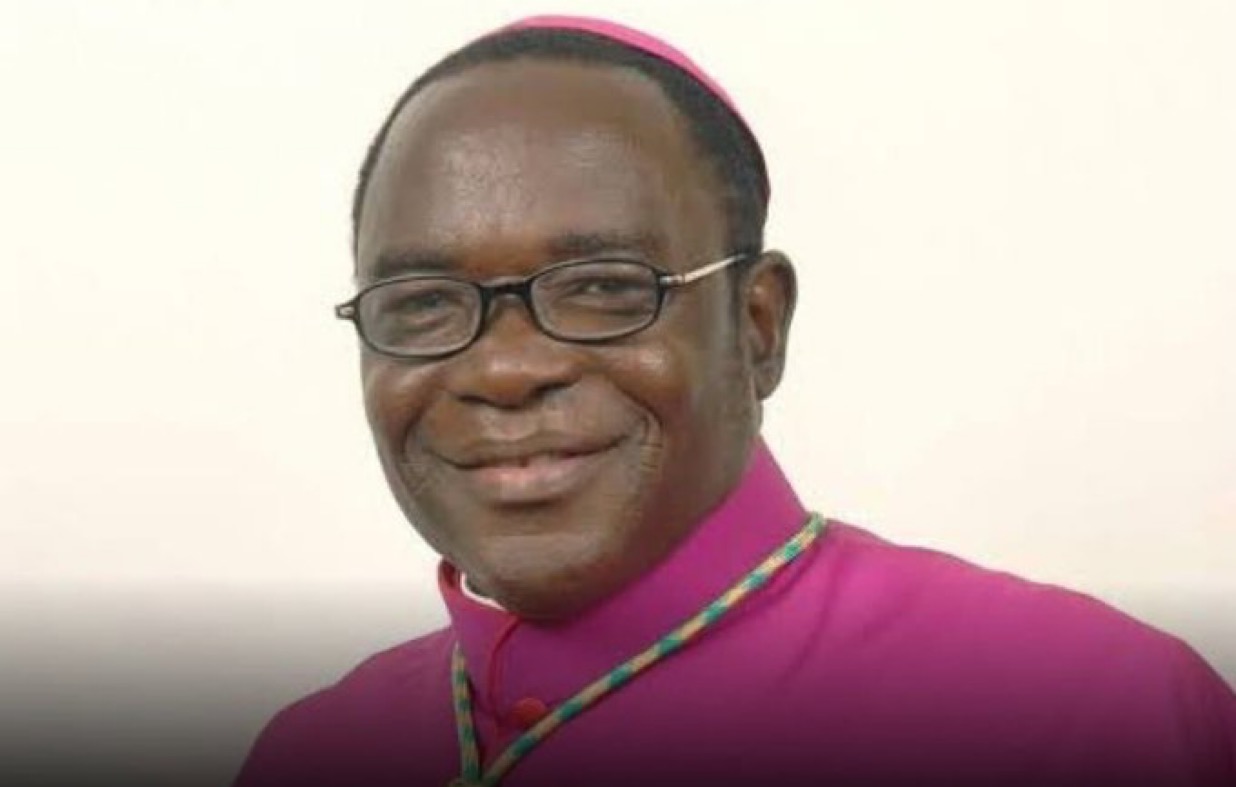In a recent statement that has sparked both laughter and reflection, Bishop Matthew Hassan Kukah, the outspoken Catholic Bishop of Sokoto Diocese, made a bold and humorous remark about the prospect of an African pope. Speaking with his characteristic blend of wit and wisdom, Kukah declared, “Electing a pope isn’t an ‘Emilokan’ affair. Let Africa win the World Cup first.” The comment, laced with cultural nuance and biting satire, has ignited conversations about the Catholic Church’s global dynamics, regional representation, and the interplay of faith and geopolitics. Delivered in the context of Nigeria’s vibrant political lexicon, Kukah’s words offer a window into broader discussions about Africa’s place in global institutions.
Decoding ‘Emilokan’ and Kukah’s Context
For those unfamiliar, “Emilokan” is a Yoruba phrase meaning “It’s my turn.” It gained prominence in Nigeria’s political sphere during the 2023 presidential campaign, when President Bola Ahmed Tinubu used it to assert his claim to leadership, suggesting it was his time to lead after years of political maneuvering. Bishop Kukah, known for his incisive social commentary, cleverly repurposed this phrase to address the idea of an African pope. By invoking “Emilokan,” he critiqued the notion that the papacy—a sacred office in the Catholic Church—could be reduced to a matter of regional entitlement or rotational politics.
Kukah’s follow-up quip, “Let Africa win the World Cup first,” is equally layered. The FIFA World Cup, a global sporting spectacle, has never been won by an African nation, despite the continent’s passion for football and the emergence of powerhouse teams like Nigeria, Ghana, and Senegal. By drawing this analogy, Kukah humorously suggests that the election of an African pope is as improbable in the near future as an African nation lifting the World Cup trophy. The remark is not a dismissal of African capability but a pointed reflection on the structural and historical barriers that make such milestones elusive.
The Papacy and Africa’s Representation
The Catholic Church, with over 1.3 billion adherents worldwide, is a global institution, yet its leadership has historically been Eurocentric. Since the papacy’s inception, only three popes have come from outside Europe—all from the Middle East, in the Church’s early centuries. In modern times, the election of Pope John Paul II (Poland) in 1978, Pope Benedict XVI (Germany) in 2005, and Pope Francis (Argentina) in 2013 marked significant departures from the Italian-dominated papacy, signaling a gradual broadening of the Church’s leadership. However, Africa, despite being home to over 230 million Catholics (about 17% of the global Catholic population), has yet to see one of its own ascend to the Chair of St. Peter.
Africa’s growing Catholic population makes Kukah’s comment particularly poignant. Countries like Nigeria, the Democratic Republic of Congo, and Uganda have seen explosive growth in Catholicism, with vibrant faith communities and significant contributions to the Church’s global mission. Nigeria alone has over 30 million Catholics, and its clergy, including figures like Cardinal Francis Arinze and Cardinal Peter Okpaleke, have been mentioned in speculative discussions about potential papal candidates. Yet, the Vatican’s decision-making process, guided by the College of Cardinals during a conclave, is influenced by complex factors—spiritual, political, and institutional—that transcend regional quotas.
Kukah’s statement implicitly acknowledges these realities. The election of a pope is not a democratic exercise or a matter of “taking turns” but a process rooted in discernment, guided by the Holy Spirit, and shaped by the Church’s global priorities. Factors such as theological alignment, administrative experience, and global influence often weigh heavily in the selection of a pontiff. While Africa’s contributions to Catholicism are undeniable, the continent’s representation in the College of Cardinals—currently around 18 of the 140 or so cardinals eligible to vote in a conclave—remains limited, reducing the likelihood of an African pope in the immediate future.
Conclusion
Bishop Matthew Kukah’s remark, “Electing a pope isn’t an ‘Emilokan’ affair, let Africa win the World Cup first,” is more than a clever soundbite. It encapsulates the challenges and aspirations of a continent striving for recognition on the global stage. By blending Nigerian political slang with a universal sporting metaphor, Kukah invites Catholics, Africans, and global citizens to reflect on the complexities of leadership, representation, and progress. As Africa continues to grow in faith, football, and influence, Kukah’s words remind us that the path to greatness—whether in the Vatican or on the World Cup pitch—is paved with persistence, preparation, and a touch of humor.
Join our Whatsapp channel to stay updated always!


